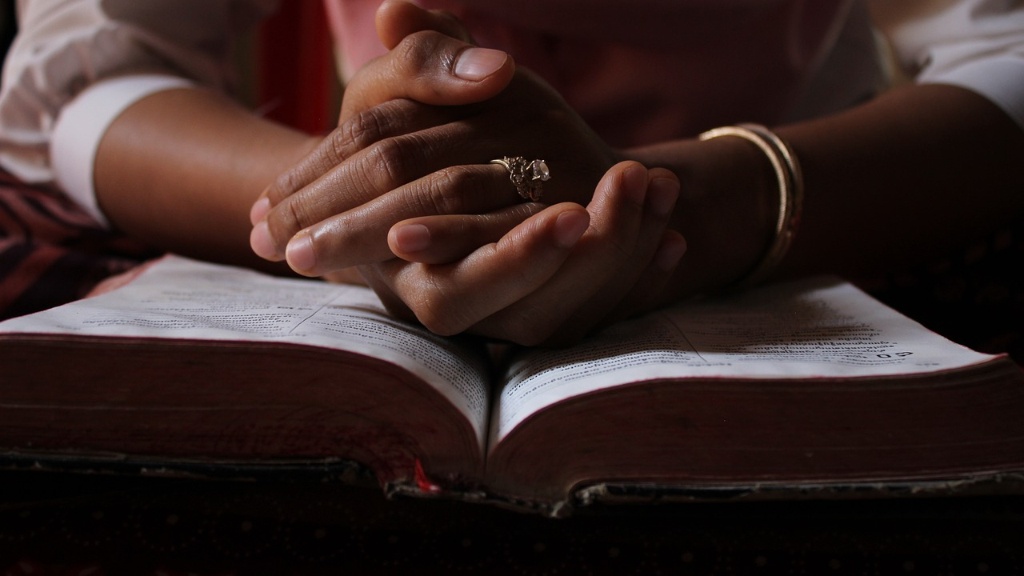The Bible has a lot to say about resilience. In fact, the Bible is full of stories of people who faced difficult situations and bounced back. From Moses to Esther to Jesus, the Bible is full of examples of people who were resilient in the face of adversity. What does the Bible say about resilience? Here are a few key verses:
The Bible has a lot to say about resilience, especially in the book of James. In James 1:2-4, we read, “Consider it pure joy, my brothers and sisters, whenever you face trials of many kinds, because you know that the testing of your faith produces perseverance. Let perseverance finish its work so that you may be mature and complete, not lacking anything.” This verse is a great reminder that trials and hardships are actually a good thing, because they produce resilience. So when we go through tough times, we can know that God is working in us to make us stronger.
Who in the Bible showed resilience?
Joseph was a man of great faith. He had been through many trials and tribulations, but he always kept his faith in God. When he finally decided to trust the God of his people, he found the resilience he needed to sail through the rough waters of discouragement and reach his divine destination. By listening to the words of God and seeing the bigger picture, Joseph was able to have faith in God and resiliently bounce back.
In 1 Thessalonians, we learn that resilience is a gift from God. When we face overwhelming obstacles, when we feel exhausted, we need God’s help. God is able and willing to strengthen us for the work to which he has called us. This is a great encouragement for us when we are facing difficult times.
What does resilient mean spiritually
No matter what life throws your way, your spiritual resilience will help you get through it. By tapping into a “higher” power, you can find the strength you need to keep going. Whether you’re religious or not, this inner strength can make all the difference when times are tough.
While David and his men were camped in the wilderness, they happened upon the home of a wealthy man named Nabal, who refused to share his food with them. In retaliation, David planned to kill all the men in Nabal’s household.
But Abigail, Nabal’s wife, intervened. She took food to David and his men, and pleaded with him to spare her husband and household. David listened to Abigail, and he did not kill Nabal.
Abigail’s story is one of faith and resilience in the face of adversity. Like Caleb, she showed that it is possible to trust and obey God even when things are difficult.
How do you build spiritual resilience?
It is important to keep praying and trusting that the Lord will work things out. He has gotten us through tough times before and He will do so again. This process requires spiritual resilience, which we can develop through cumulative learning and experience.
The human spirit is incredibly resilient. No matter what we go through in life, we always have the potential to be happy again. When we’re in the midst of difficult times, it can be hard to imagine that we’ll ever find happiness, but we always do. And in moments of joy, we don’t think about the mundane aspects of life that we have to endure. We just enjoy the moment for what it is.
How do Christians become resilient?
Resilient Christians are those who have an unshakeable faith in God. They know that He is in control of everything and that He will never leave them or forsake them. They pray fervently and deeply, trusting that God will hear and answer their prayers. They also dig deeply into God’s word, learning all they can about Him and His will for their lives.
Resilience. We all need it to get through tough times. It’s the ability to navigate through adversity, to effectively adapt to change and thrive. That means having to cultivate a sense of calm, clarity and stability, even when things are stressful and overwhelming.
Resilience isn’t something that you’re born with – it’s something that you develop over time. And it’s an essential life skill that everyone should learn. So how do you build resilience?
There are many ways, but some key things to remember are to:
• Stay connected to your support network of family and friends
• Take care of yourself – make sure you get enough rest, exercise and eat a healthy diet
• Find ways to relax and de-stress
• Be positive and optimistic
• Accept that things will sometimes be tough, but know that you can handle it
Start by making small changes in your life and build from there. Remember, even the toughest times will eventually end. And with resilience, you’ll be better equipped to deal with whatever life throws your way.
How does faith help resilience
It is well established that having a strong faith can play a positive role in an individual’s ability to cope with major life stressors and challenges. Studies have shown that faith can provide a sense of meaning and purpose, as well as a framework for understanding and interpreting difficult life experiences. These findings suggest that utilising faith-based resources can be beneficial for enhancing resilience in the face of adversity.
Resilience is the ability to bounce back from difficult situations. It is made up of five pillars: self-awareness, mindfulness, self-care, positive relationships, and purpose.
self-awareness is knowing your strengths and weaknesses, and using this knowledge to improve your life. mindfulness is being aware of the present moment and accepting it without judgment. self-care is taking care of yourself physically and emotionally. positive relationships are supportive relationships that help you through tough times. purpose is having a goal or something to look forward to.
Resilience is important because it helps you cope with stress and adversity. When you are resilient, you are able to bounce back from setbacks and learn from your mistakes.
What are 5 characteristics of a resilient person?
There are a number of characteristics that are common in resilient people. They are able to accept change, keep things in perspective, have a sense of humor, and assess their own resilience.
Change is a constant in life and being able to accept that is an important part of resilience. Trying to fight change or resist it will only make it harder. It’s important to be flexible and adaptable.
Keeping things in perspective is another key characteristic of resilient people. They are able to see the big picture and not get bogged down in the details. This allows them to maintain a positive outlook even in difficult situations.
senses of humor are often found in resilient people. They are able to laugh at themselves and find the humor in situations. This helps them to cope with stress and adversity.
Finally, resilient people are often self-aware and able to assess their own resilience. They know their strengths and weaknesses and use that knowledge to work on building up their resilience.
Building resilience is necessary to weather the storms in our lives. The 3 Rs- Reflect, Reframe, and Reachout- help us to develop self-awareness and put them into practice.
What is Romans 8 37
This verse is a great encouragement to us! It tells us that no matter what difficulties or trials we may face in life, we can overcome them all because we have God on our side. He loves us and will give us the strength and help we need to conquer anything that comes our way!
This passage is actually very encouraging because it shows that even if you make mistakes, you can always get back up and try again. It also shows that if you are wicked, you will eventually fall into trouble. This is a great reminder to stay on the right path and to not give up when things get tough.
What is Proverbs 31 25?
The Proverbs 31:25 woman is strong, confident, and content. She knows her value and worth, and laughs freely in the face of what lies ahead. This uplifting Bible verse is a beautiful reminder that we can face the future with hope and joy, knowing that God is with us always.
Queen Esther is yet another example of resilience in the Bible. Despite knowing the risks, she chose to go against Haman and defend the Jews. What’s more, she did so because she knew it was the right thing to do in God’s eyes. In the end, because God was on her side, she emerged victorious.
What are the 5 C’s of resilience
As someone who is constantly striving to improve my own resilience, I found this review to be very helpful. The five “Cs” of resilience are confidence/control, connections, commitment, calmness, and care for self. Out of these, I feel that confidence/control and calmness are the two that I need to work on the most. I am often too tense and worried about things that are beyond my control, and I need to learn to let go and trust that things will work out. self-care is also important, and I need to make sure that I am taking care of myself both physically and emotionally. By focusing on these three areas, I think I can improve my resilience and better deal with whatever challenges come my way.
Try to infuse some form of The Four R’s of Resilience into your daily routine and see how it impacts your wellbeing! If you find that one (or more) of The Four R’s is particularly challenging for you, make a special effort to focus on that area and see how it goes.
Conclusion
The Bible says that resilience is a virtue that should be cultivated. It is a strength that allows us to overcome difficult situations and emerge stronger.
The Bible is full of stories of people who overcame great challenges through resilience. In the book of Exodus, Moses led the Israelites out of slavery in Egypt through his strength and resilience. In the book of Job, Job lost everything he had, but he remained resilient and was eventually rewarded by God. Jesus himself was a resilient figure, enduring great suffering and persecution before his crucifixion. The Bible therefore teaches us that resilience is a virtue that is essential for overcoming difficult challenges in life.





